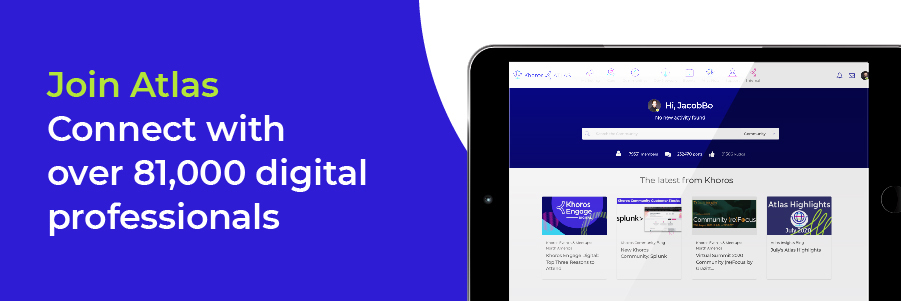 Logo
Logo
EXPERT INSIGHTS
Aug-27-2020
How online communities are doing the heavy lifting this year
Jacob Borgeson
This year, brands and individuals alike have had to quickly adapt in order to stay safe during the COVID-19 pandemic, and that’s meant that more people than ever before have been working and socializing online.
At Khoros, we’ve found that online communities have helped fill the basic human need for connection and information that has been created by the absence of contact with in-person communities. In the last few months we’ve seen some great examples of top brand communities doing all these things and more. Here are eight of our favorite examples, as well as some advice for how you can get the same results.

Here’s what online communities are doing this year.
1. Fostering resilience
Intuit products are designed to empower consumers, self-employed customers, and small business owners to improve their financial lives. When the pandemic-related shutdowns and interruptions began in the US in mid-March, Intuit wasted no time leveraging their branded online communities to help customers in safe, reliable ways. For example, to help their customers find government stimulus funding, Intuit’s QuickBooks Community provided live support for their Intuit Aid Assist. Intuit also hosted a series of QuickBooks Ask the Expert hangouts in their online community. During the hangouts, customers could connect with experts in real time to get their COVID-19 related questions answered. With these steps, and others like it, Intuit is helping their customers foster resilience.
2. Expanding learning options
PowerSchool has the distinction of being the first web-based student information system. They built their online community to be the central hub for peer-to-peer discussions, self-help, and chat and web support for all of their customers, a move that brought their 30+ solutions under one umbrella, simplifying and streamlining the customer experience. Online learning has taken on increasing importance during the pandemic, especially as the school year begins in earnest. PowerSchool’s community has proved its ability to support customers by expanding learning options, offering COVID-19 resources to help their schools with online instructions, and providing a chatbot for parents for back-to-school support. As a result, they have had 127,000 new registrations and over 4 million visits this year — a 30% increase. You can hear more about PowerSchool’s story in our upcoming webinar with The Community Roundtable on September 17th. Register to attend here.
3. Connecting ecosystems
Innovative energy and automation company Schneider Electric is spearheading the digital transformation of the energy industry by providing digital solutions for efficiency and sustainability, and working to ensure energy is digitized, reliable, safe, and green. The Schneider Electric online community serves billions of key stakeholders and connects a complex ecosystem in which peers answer 90% of the questions posed by members — an inspiring achievement.
4. Reducing support costs
Flexera helps enterprises optimize technology. Their online community connects more than 50,000 global customers and 1,300+ employees, helping members achieve their goals in a positive, streamlined experience. In the 12 months after Flexera launched their online community, they realized $5 million in support cost savings, even during the most difficult parts of 2020. They’ve also boosted engagement: in those same 12 months, their search activity rose 60%, demonstrating that their community can handle an increase in activity while also reducing costs.
5. Helping people stay informed
AARP, which boasts nearly 38 million members, is a trusted source of news and information, a quality that has been incredibly important this year. AARP’s online community provides exclusive access to members, and this year, their Expert Series program was modified to make important COVID-19 information available. Crucially for the population AARP serves, this year they also made Caregiving Experts available in their online community. These experts offered information in the Caregiving Tips area of their community. To boost morale among members, the Rewards team held contests for the best ways to manage at home while maintaining positive mental health.
6. Creating deeper relationships
Travel company Airbnb had a particularly challenging year as they quickly adapted their business model from one that supported unfettered travel to one that both supports their hosts and makes a meaningful contribution during the pandemic. Early this year, in under two weeks, Airbnb arranged for housing for over 100,000 frontline workers by rallying their company and host community around the shared cause, and their host communities were a crucial element in that achievement.
Airbnb opened up three new boards in their English, French, and German communities where hosts could focus on COVID-19 discussions. Airbnb also supported hosts by introducing listening sessions during which hosts could discuss questions or concerns, have honest conversations about how they were feeling about COVID-19 related company updates, and propose ideas. The sessions also created a space where hosts could connect with each other. All of these adaptations helped Airbnb form stronger relationships between the brand and their customers and also between customers themselves, and all of it was made possible by their online communities.
7. Replacing lost personal interactions
Another important role online communities have filled this year has been replacing lost in-person interactions with equally satisfying, but safe, outlets for connection. Anaplan Community, which works to connect people with data to enhance decision making in dynamic environments, was able to seamlessly transition from in-person events to satisfying online events by taking advantage of their online community. Even before COVID-19, Anaplan hosted an online version of all of their live events, and now, their community is a hub of knowledge and learning and meaningful connection. Anaplan is helping to replace lost personal interactions beyond their own community, too: they’ll be joining us for Khoros Engage with an on-demand session titled, “Combine communities & events: Ideal overall digital engagement,” available October 12, 2020.
8. Discovering new business strategies
Communities have extended, enhanced, and opened up new strategies by lowering the barrier to establishing connections between customers, support teams, product and engineering, and external experts. The more connections you’re able to make, the bigger your ecosystem can grow. Microsoft and Autodesk have recently tapped into new ways to bridge their product communities, expanding the opportunity for experts to share knowledge, reach a bigger audience, and even open up entirely new business strategies they couldn’t conceive of before. We’ll be sitting down with them to discuss what they’ve learned in an upcoming live panel session on September 29th. Register to join us here.
How to host your own community
Online communities are an excellent resource for brands looking to build better solutions to complex problems, and hopefully these stories have demonstrated precisely how. Gathering a group of active participants who can address problems with more flexibility and empowering them to do so through education and connection is how we will accelerate out of this troubled year.
If you want to find out more, check out our Khoros Communities page or request a demo today.
If you want to connect with the bold community leaders who lived these stories, join our Atlas Community of over 70,000 digital professionals, or sign up to hear them speak at our Khoros Engage on October 14th.












